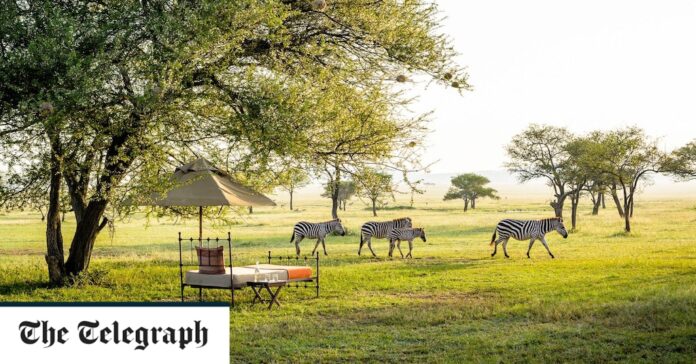Safaris once involved thin sleeping mats, hard rusks and coffee from a tin cup – now it’s a sanitised world of fine wines and influencers
I first started going into the bush to hang out with wild animals in the Sixties as a Rhodesian schoolboy, almost before the word safari was used in polite society. In those days it was just a case of grabbing your veldskoens (bush shoes) and camping equipment and heading into the wilderness. You set up a simple tent beside running water and cooked boerewors and baked beans on a Primus stove. No fuss. Around you were wild animals from horizon to horizon and it was pure, simple and rather magical.
What we did not anticipate was that it would all become an industry of Hollywood magnitude dominated by middle-class Western holidaymakers who needed to be pampered and stroked and spoiled and kept far away from the dirt, the snot, the sweat and the blood and gore of the real bush experience. Here are 10 ways that wealthy travellers have sanitised the traditional safari experience beyond all recognition.
By the Seventies, affluent Westerners were already bored with living comfortable lives, going to the pub and watching television. They wanted to reconnect with the soil, the grit, the earth, among the wild animals their ancestors had once hunted for food. Only they didn’t really. They wanted a virtual wilderness with the option of a luxury hotel room and hot and cold running water just over the horizon.
First and foremost, these new holidaymakers needed protection. They certainly could not be inconvenienced by things like malaria, tsetse fly and dengue fever that lurked in African safari land and had for centuries protected the wild animals against human encroachment. Travellers were soon coming with bags full of pharmaceuticals to ensure that not even a sniffle interfered with their holiday. It has opened up even the most remote parts of Africa to safari tourists – good news for holidaymakers, bad news for the animals.


